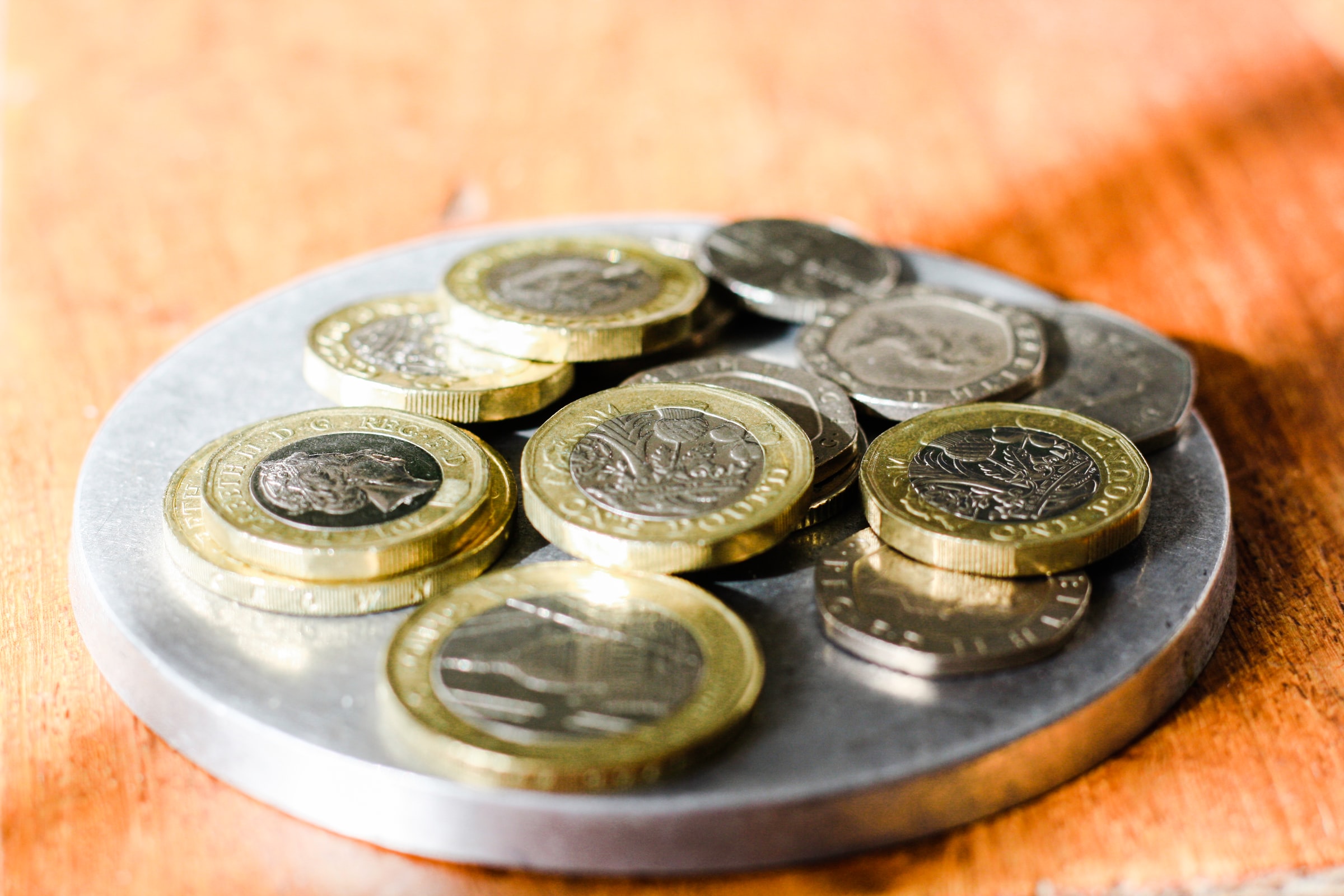In last week’s article, “Some financial New Year’s resolutions for you to consider”, we suggested budgeting as one possible resolution to make in the New Year. We talked briefly about some ways of doing this. In this article, we’ll be going into more depth about budgeting, and some potential budgeting solutions to help you get a handle on your finances.
What's Included?
What is budgeting?
You probably already have some idea of the answer to this, but it’s good to define it clearly.
Investopedia defines a budget as “an estimation of revenue and expenses over a specified future period of time […] usually compiled and re-evaluated on a periodic basis.”
In other words, when you make a budget, you look at how much money you expect to have coming in. You then look at how much money you expect to go out.
For example: You look at your personal income, and other income (if, for example, you have investments). You then look at your expenses – your phone bill, your supermarket shop, takeaways and drinks at the weekend, and so on.
After you’ve added up your income and subtracted all your expenses, you have a total remainder. This is the money you have leftover every month. The goal of budgeting is to increase the size of that remainder. This way, you can have more wiggle room when it comes to your finances.
One mistake many people many people make when it comes to budgeting is assuming that it necessitates being a miser. Not so! You don’t have to be a penny-pincher, you just have to be aware of your finances.
So how do I go about budgeting?
There are several budgeting solutions you can try. If you’d rather just have the peace of mind and let software and algorithms do the legwork for you, there are paid solutions. On the other hand – as with anything in life, the more “hands-on” your budgeting is, the less it will cost you.
The cheapest budgeting route: Making a spreadsheet
If you work in an office, you might already have an understanding of Microsoft Excel (or a similar program, like LibreOffice Calc or Google Sheets). Making a budget in a spreadsheet is pretty easy if you know what you’re doing. There’s loads of instructional articles all around the Web, and even a few free spreadsheets to download.
Microsoft offer some premade templates specially tailored for the UK market, though you will need a Microsoft 365 subscription to download these.
Generally, a budget spreadsheet features a section dedicated to projected monthly income, then a section for your actual income. There are then sections dedicated to your expenses, into which you will put in amounts you project to spend.
Once you’ve figured out your expenses, you can find out what your overall balance for the month will be – that’s money you can put towards savings, investments, or, of course, fun.
Now that’s all well and good, but maybe it sounds like a headache. For sure, this involves a lot of saving receipts and payslips, and carefully typing numbers in to white boxes. You might be concerned about going cross-eyed!
Fear not, for there are other solutions available.
The pricier budgeting route: Purchasing specialised software
There are several software applications for your PC or Mac that can help you make and manage your own budget with less fuss than making a spreadsheet. You will still have to save your receipts and payslips, but there’s less hassle with having to make the spreadsheet and learn the formulas and formatting all yourself.
The most popular personal finance software is Quicken, which people have used since 1983 – that’s almost forty years! Quicken is pretty robust and continues to get good reviews. However, its graphical user interface is a little old-fashioned. Still, it works, so it’s something to consider.
Some budgeting software will let you manually put in your bank data by downloading it from your bank’s website. This is a hassle, but it’s less of a hassle than chasing after every penny yourself. But say you don’t even want to do that – you can’t be dealing with the stress, and you want the whole thing to be completely automated.
There’s a solution for that. But it’ll cost you!
The priciest budgeting option: Connect your bank account directly to your budgeting software
In our modern high-tech world, most all money is electronic. We don’t live in a fully cashless society, but we’re slowly getting there. In fact, even the value of money isn’t even connected to a standard any more. Instead, most money is valued based on supply and demand, as well as government stability. We call that “fiat currency”.
There are an abundance of apps that will let you connect up your bank accounts to their software. This can automatically work out a budget for you, based on your statements and spending habits. Apps like You Need A Budget (or YNAB) are well-known for helping customers get mileage out of every last penny, so that you can carefully account for every last liquid asset you own.
This sophistication comes at a price, however. These apps are almost always sold on a subscription model. This price is usually not too expensive – generally it’s less than £10 a month – but it’s still an additional cost that you’re losing from your budget.
Still, when it comes to budgeting, if you’d like an automatic system to do most of the legwork for you, you might find it’s worth the price of entry. On the other hand, you’ll lose some cash every month on it. It’s about weighing up the costs and benefits.
Budgeting pitfalls
Budgeting is easy to begin, but tough to stick with. This is largely down to the fact that humans are still basically animals with animal impulses. Our higher-order thinking and handle on maths requires conscious effort that goes against our instincts. Our brains are set up to treat instant gratification and short-term rewards as preferable to longer-term, passive benefit. In short, you’re bound to slip up and make mistakes when thinking about money and budgeting it.
Here’s a few potential pitfalls you could find yourself falling into.
Nobody likes a miser!
As we mentioned last week, budgeting is not the same as miserliness. You don’t have to hoard all your cash and insist on not spending it. The point of a budget is to have a greater awareness of where your money is going and what money you need to reserve, so you know what you have left over to put towards things like a house deposit, investments, or just fun and games.
The main thing is keeping track and not overspending on extravagant “treats” every other day. It’s good to treat yourself once in a while. It’s bad to treat yourself so often that it stops being a treat! Budgeting is all about self-control and using your head.
Don’t give up!
It doesn’t matter what it is – going to the gym, giving up drinking or smoking, or even just trying to stop biting your nails. A lot of people, when they don’t see instant results on a life change, tend to give up and go back to old habits. This is because it’s comfortable, and takes less work. The thing is, though, if you stick with healthy habits, they tend to just become, well, habits.
The same is true of budgeting. In all likelihood, you won’t see huge results in the first month or two. You will probably slip up and blow a big chunk of your cash on something frivolous. But that doesn’t mean you should just give up! What’s essential to forming good habits is not sticking to it absolutely perfectly, it’s recognising your slip-ups, and resolving to keep trying.
Eventually, maybe when you don’t even realise it, you’ll see your decision having the desired effect.
Make sure you keep track of your finances!
Of course, budgeting doesn’t work at all if you’re simply not paying attention to your money and doing the maths. The solutions listed above can make this easier for you, but at the end of the day, it’s only you that can make decisions on using your money effectively.
This means carefully considering where you spend your money every day and every week. And it means carefully considering what you spend your money on. As we suggested last week, you can look at changing your coffee habits, or try to avoid big brands where off-brands or own-brands will suffice.
Again, there’s no shame in the occasional cup of coffee from your favourite high-street coffee chain, or buying a particular brand of tomato ketchup, it’s more about what you’re doing every week – do you really need brand-name cereal, brand-name soft drinks, brand-name biscuits, brand-name bread and butter? Or can you get on just as well by forgoing brands?
At the end of the day, budgeting is all about keeping an eye on things.
Keep an emergency fund!
It’s a good idea to keep an emergency fund available. This is a pot of money that can cover any unexpected expenses – car repair, mobile phone repair, boiler replacement, and so on. Generally, you can calculate how much you need for an emergency fund after calculating your projected expenses. Some people will use a fixed percentage, others will think of the most expensive emergency expense that could fall on them and try to keep that saved.
However you choose to do it, make sure it’s enough! It’s no good just keeping £30 sitting in your account when an average boiler replacement can be between £500 and £1,500! You’ll want to have enough of a pot saved that you can cover a sizeable chunk of your emergency costs.
Bear in mind that your emergency fund doesn’t have to cover everything down to the last penny – it just needs to take the strain off your budget to cover every possible expense.
You can keep adding into your emergency fund every month, if you wish, or you can simply leave it as it is. But do make sure to re-evaluate periodically to make sure it covers your needs!
Speaking of which…
Re-evaluate your budget periodically!
Here’s a big budgeting mistake that a lot of people make: Failing to ensure that their budget is still up-to-date with all their needs. An automated solution might not be as bad for this, but if you’re doing it on your lonesome, you might not realise that you really need to re-evaluate your budget every so often.
A good rule of thumb is to check over your finances every six months. Have you had any income raises or, worse, income reductions? Has your situation changed? Have you moved to a different service provider that costs more or less? All of these things can change how you budget.
Remember, budgeting is about keeping on top of your money. That means playing an active role in your personal finances, and making sure you know where it’s all going.
In conclusion
Budgeting is a rewarding and healthy habit to take up, but it does require a bit of graft and perseverance. It also requires some sacrifice on your part – whether it be time, money, or time and money. Still, if you’re wanting to buy a house in the next few years, or become truly self-sufficient with your cash, then it’s an essential skill to learn and master.
In this article we’ve detailed just a few ways to budget so you can make your money work for you. There are other things you can try. Check out last week’s New Year’s resolutions article to find out what else you can try.
Credit-Score offers two fabulous solutions.
If you’re preparing to take a mortgage, never apply until you’ve tried our unique and FREE Credit-Score Home app. Our smart technology will tell you what you need to fix so you avoid rejection. The app predicts when you will be able to buy, for how much and tracks your month-by-month progress to mortgage success. We’ve even added your own mortgage broker, so you get the best deals available.
More focused on your credit rating? Well, get started for free with Credit-Score’s 24- Factor Credit Check to truly help you improve your creditworthiness and how lenders view you. (Remember: lenders don’t use your credit score! We’ll show you what lenders look for and how to get your credit report in the best shape possible).
Lastly, and most importantly: From all of us at Credit-Score, have a Happy New Year!






